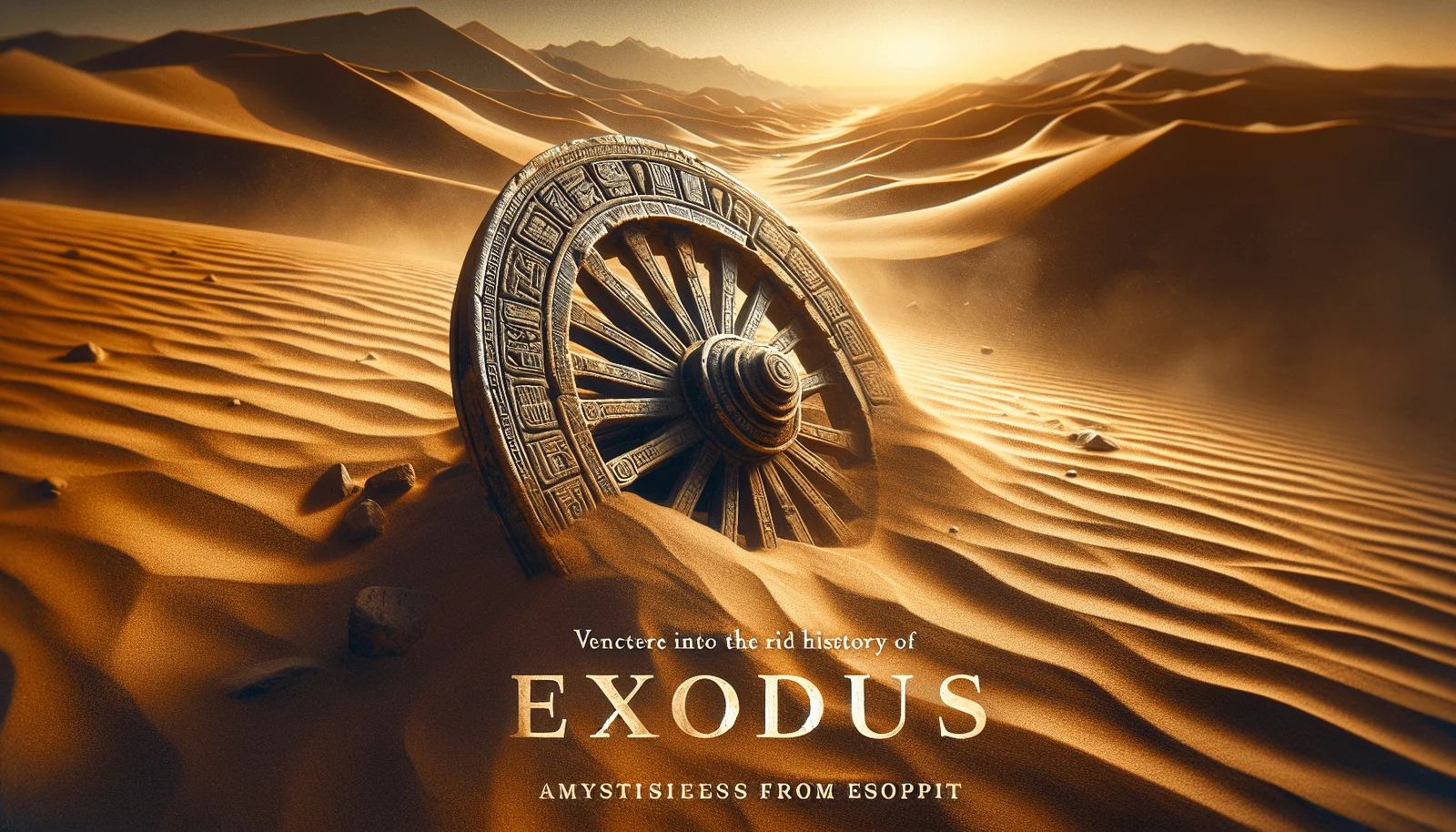In this fascinating article, we will delve into the historical significance of the Exodus, shedding light on this monumental event that has captivated scholars and religious believers for centuries. By exploring the historical context surrounding the Exodus, we aim to unravel the significance of this ancient event and gain a deeper understanding of its impact on history and culture. So, grab a cup of tea and join us on this journey of discovery as we uncover the mysteries of the Exodus.
Unraveling the Historical Significance of the Exodus

Introduction to the Exodus
The Exodus is one of the most significant events in the Old Testament of the Bible, where the Israelites, led by Moses, escaped from slavery in Egypt and journeyed to the Promised Land. This event holds immense historical, cultural, and religious significance, and continues to captivate the minds and hearts of believers and scholars alike.
The Biblical Account of the Exodus
According to the biblical account in the Book of Exodus, the Israelites were enslaved by the Egyptians for over four centuries. However, with the divine intervention of God, Moses was chosen to lead his people out of slavery and into freedom. The story narrates the series of plagues that befell Egypt, the parting of the Red Sea, the journey through the wilderness, and the giving of the Ten Commandments at Mount Sinai. The Exodus account serves as a cornerstone of the Israelite faith, symbolizing God’s deliverance and the covenant between Him and His chosen people.
Controversies and Debates
While the biblical account has been widely accepted by religious communities, scholars and historians have debated the historical accuracy of the Exodus narrative. Some argue that the story might have been embellished or fictionalized, while others suggest that it could be based on a real historical event. The lack of concrete evidence outside of religious texts has fueled these debates, leading to a multitude of theories and interpretations.
Archaeological Evidence
One of the major challenges in uncovering the historical significance of the Exodus lies in the absence of direct archaeological evidence. Although several scholars have conducted extensive research, the discovery of artifacts specifically linked to the Exodus has been limited. This lack of physical evidence has contributed to the skepticism surrounding the historicity of the Exodus. However, it is essential to note that archaeology is an evolving field, and new discoveries and interpretations continue to shed light on ancient civilizations, including the possibility of corroborating the Exodus account.

Historical Context of the Exodus
Understanding the historical context of the Exodus is crucial in deciphering its significance. The Israelites were a Semitic people believed to have lived in ancient Egypt during the time of the New Kingdom. This period witnessed the rule of powerful pharaohs and marked a significant era in Egypt’s history. The Israelites’ enslavement likely occurred during the reign of Ramses II, who is often identified as the pharaoh of the Exodus. The Exodus, therefore, takes place within the broader historical framework of ancient Egypt’s political and social dynamics.
Egyptian Records and References
Some scholars argue that the absence of direct mention of the Exodus in Egyptian records raises doubts about its historicity. However, it is important to consider the limitations of available historical records. The ancient Egyptians did not document events that portrayed them in a negative light, such as military defeats or challenges to their authority. Hence, the lack of explicit references to the Exodus might be attributed to these selective records rather than evidence of its nonexistence. Additionally, some Egyptologists propose alternative explanations or linguistic connections that could potentially link certain inscriptions or events to the Exodus.
The Exodus as a Symbol
Beyond its historical and religious dimensions, the Exodus has become a symbol of liberation and hope for many oppressed communities throughout history. Its narrative has inspired movements for freedom and justice, serving as a powerful metaphor for breaking chains and overcoming adversity. The Exodus resonates with individuals and societies in their quest for liberation and serves as a reminder of the power of faith, resilience, and the pursuit of justice.
Cultural and Religious Impact
The Exodus holds immense cultural and religious significance for both Jewish and Christian traditions. For Jews, the Exodus is a central theme in the Passover festival, commemorating their liberation from Egypt. It represents the foundational story of the Jewish people, highlighting their chosenness and covenant with God. In Christianity, the Exodus finds parallelism in the concept of salvation through Jesus Christ, drawing connections between the liberation from physical bondage to spiritual freedom.
Interpretations and Legacy
The Exodus has spawned a myriad of interpretations throughout history. Scholars, theologians, and believers have offered various explanations and understandings of the events and their implications. These interpretations range from historical analyses to allegorical and theological frameworks. The legacy of the Exodus endures through its impact on religious thought, literature, art, and political discourse. Its themes of liberation, faith, and justice continue to inspire individuals and shape collective identities.
Conclusion
The Exodus remains an enigmatic and significant event, blending historical, cultural, and religious dimensions. While the lack of direct archaeological evidence and the debates surrounding its historicity persist, the Exodus continues to captivate the imagination and fuel diverse interpretations. Its symbolism of liberation and faith reverberates in the hearts of believers and resonates with individuals seeking freedom from various forms of oppression. Regardless of its historical veracity, the Exodus stands as a testament to the enduring power of stories, the quest for justice, and the human spirit’s capacity for hope and resilience.
